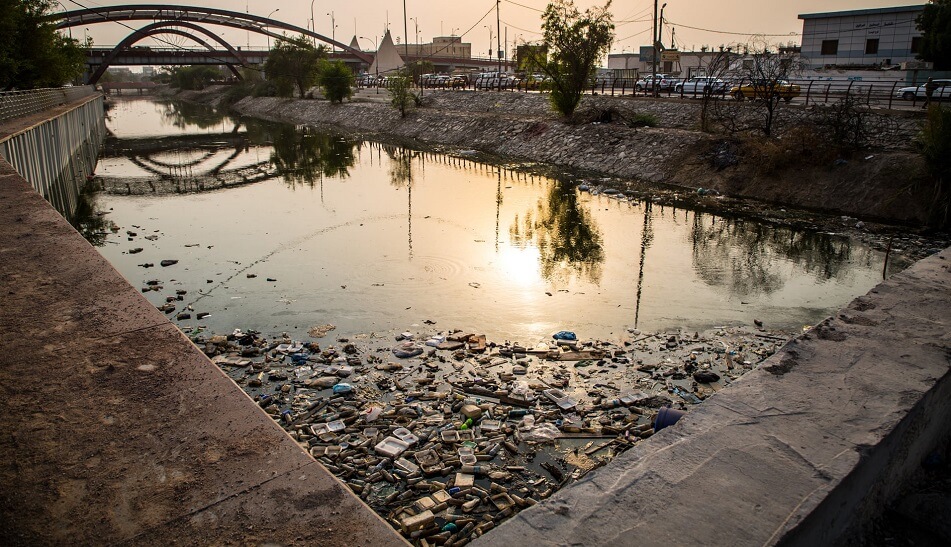Environmental degradation in Iraq has been impeding the socioeconomic growth and stability in three southern governorates in Iraq- Basra, Missan and Thi-Qar. The problem is further deepened by governance challenges at both local and national levels, which contributed to destabilizing the fragile security situation.

"Factors contributing to this situation include the indirect impact of climate change on the region in addition to the loss of arable land; the increase of urban water demand paired with an outdated and neglected infrastructure prone to leakages; and, finally, the absence of a transboundary governance agreement for the Tigris-Euphrates river system between Iraq, Syria and Turkey."
Depleted natural resources significantly hamper traditional rural livelihoods in southern Iraq, specifically poor water quality and dry irrigation channels. According to the report, water issues have driven framers away from their lands, and the situation has been only getting worse since 2007. Water scarcity forced almost 15,000 out of their rural communities as of January 2019. Most of the displaced farmers move closer to towns or other urban areas where there is better access to water.
What needs to be done?
Displacement due to environmental stresses should take priority in Iraq' post-ISIS reconstruction plans. This includes restoring and protecting the marshes and agroecosystems because they significantly contribute to stability and food security. Technical and financial support from national and international stakeholder is crucial to assist Iraq setting up a nation-wide strategy to address the country's environmental challenges.
International development stakeholders and national government institutions should cooperate to offer vocational training for displaced people, especially the youth. This will significantly contribute to supporting stability efforts. The Iraqi government is also expected to provide essential services for displaced people who often live in areas that are not officially assigned for residential purposes. It is important to couple these measures with comprehensive tracking and monitoring of the displaced population, including the economic and environmental factors.
Read the full report here.
Check out this photo gallery by The Guardian ' We have no options': how water scarcity is changing south Iraq - published on 19 March 2020.
Photos credit: Tom Peyre-Costa/ the Norwegian Refugee Council / The Guardian



